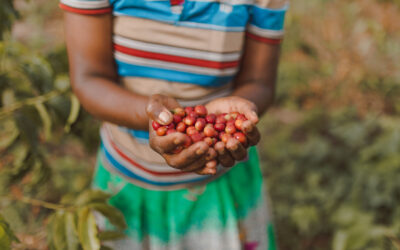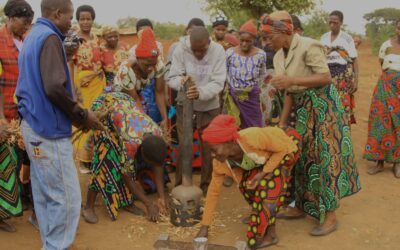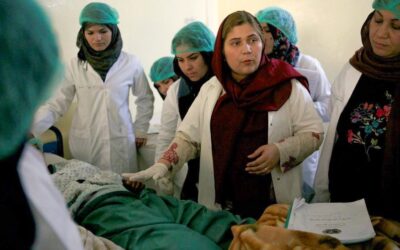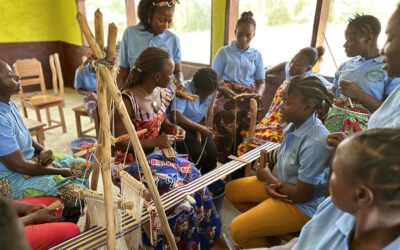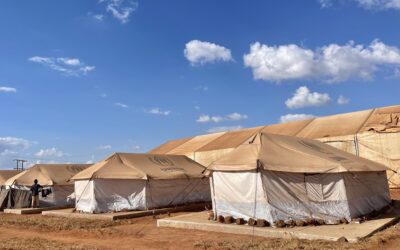8 interventions creating healthy homes in Zimbabwe
The philosophy behind the Healthy Homes approach is that sick adults cannot work or care for children, and sick children cannot attend school or grow physically at a healthy rate; thus only a truly holistic approach that addresses all aspects of health in the home will help families improve their livelihoods.
For the Zaka region of Zimbabwe, families have it particularly hard. Economic crisis, political instability, health emergencies, and drought keep many communities locked in a cycle of poverty. Because of the economic and environmental challenges, the need for practical household interventions are incredibly important to support this region.
The Healthy Homes initiative that we’re partnering on with Bopoma Villages in Zaka, implements 8 proven sustainable interventions that help families rise out of poverty.
1. BioSand Filters
A single household BioSand water filter can provide enough clean water to meet the needs of a household of 10 people. They eliminate virtually all parasites and over 95% of bacteria. The filters that Bopoma connects families with are made from locally available, cheap materials, require no chemicals, and require very simple maintenance.
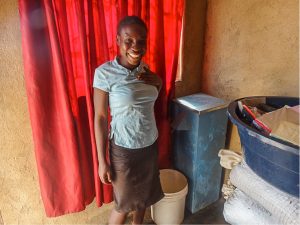
Anna and her family are beneficiaries of the Healthy Homes program and use a BioSand filter to access clean water.
“We used to frequently visit the hospital and spent a lot of money because of diseases from the water and I almost lost my life. We now have access to clean water at our home and I am very excited about this.”
A BioSand filter provides Anna’s family with a lifetime of clean, safe drinking water.
2. Tippy Taps
Tippy Taps are handwashing stations that provide an effective way to wash hands in the absence of running water.
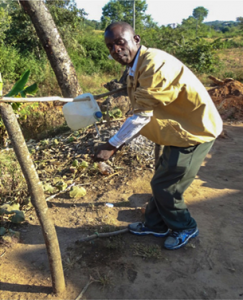
Joseph Wasosa is one of our partner Bopoma Villages’ dedicated community volunteers. Before the arrival of the Healthy Homes program in Zaka, Joseph’s family and many others suffered from preventable diseases transmitted by flies and contaminated water. Joseph is grateful for the opportunity to help improve the quality of life of children and families in his village through the practical interventions introduced by the Healthy Homes project.
3. Pot Racks:
These racks eliminate bacterial growth on wet dishes by drying in the sun, killing microbes.
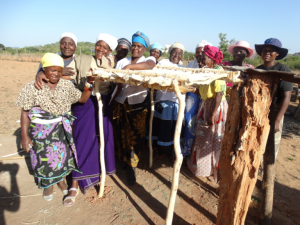
4. Disposal of Waste and Garbage
Removal of animal waste and garbage from yards and dwellings minimizes contamination and disease. Food and animal waste is composted and garbage disposed of in a pit.
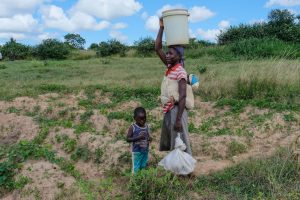
5. Fly traps
Flies are a major carrier of disease. Simple homemade devices like fly traps are easy to construct using low cost materials or locally available materials.
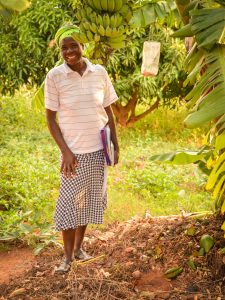
These traps are made with plastic bottles that catch and kill flies. These simple implements protect the health of villages from diseases spread by flies.
6. Rocket Stoves:
Cooking in many parts of Africa is usually done over open fires in small huts. The resulting smoke is a leading cause of death. Rocket stoves are simple to construct and generate more heat with less smoke using less wood, and are used outdoors.
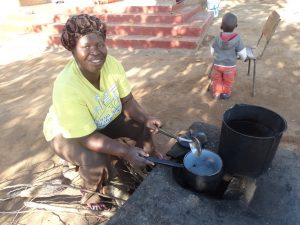
Salome Chakomoka smiles as she prepares dinner for her family. A mother of three young children, Salome has a lot to smile about as she proudly prepares a meal on her new outdoor rocket stove. Cooking in Africa is usually done over open fires in small huts. The resulting smoke is one of the leading causes of death for women and small children. The Healthy Homes program teaches families to build no-cost rocket stoves that generate more heat with less smoke. Rocket stoves also use a fraction of the amount of wood needed for an open fire, saving women and girls hours of labor gathering wood. Salome says,
“We now know that it is us who can change our lives.”
7. Bio-Intensive Household Gardens
A diet consisting mainly of maize meal prevents starvation but lacks essential vitamins and minerals, so bio-intensive gardens provide high-nutrient vegetables essential to health and disease prevention.
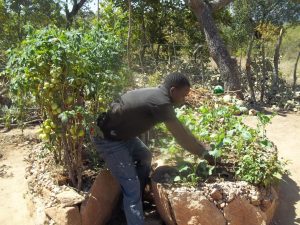
“My name is Isaac, and I live in Chimedza village with my mother and younger brother. My mother has a lot on her hands. To make things easier for her I have worked with others in my village to build the nutritional community garden and also to construct a keyhole garden at our home. Our keyhole garden has supplied us with many kinds of vegetables, which gives us all the vitamins we need. We have already harvested and replanted our keyhole garden at least four times now. We have learned to compost all our kitchen food garbage in the basket in the center of our keyhole garden so our homestead stays clean and our soil is always being enriched.”
8. Rainwater Harvesting
Water is critical to the success of a garden, and locally developed methods of capturing and storing rainwater extends the growing season of a garden. Our partner Bopoma Villages is developing and teaching methods of rainwater harvesting and conservation so that families and communities can retain and make maximal use of whatever rainwater falls.
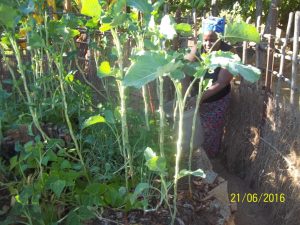
Support the Healthy Homes program in Zaka, Zimbabwe here.
Serena Kaveney is a Grant Analyst at One Day’s Wages and a student at Seattle Pacific University.
Share this story: [shareaholic app=”share_buttons” id=”26108403″]
More stories of impact
When Generosity Sounds Like a Song: An Invitation to Create Together
At One Day’s Wages, we are endlessly inspired by what happens when people bring their full selves—their creativity, curiosity, and courage—into a shared mission. Our work to alleviate extreme poverty has always been built on partnership. Not just with grassroots...
Ways to Give: Simple, Meaningful Options That Fit Your Life
Generosity isn’t one-size-fits-all. At One Day’s Wages, we believe giving should feel accessible, thoughtful, and aligned with your real life—whether you’re just starting out, raising a family, building a business, or planning your legacy. Here are several ways our...
Starting With Strengths: How Asset-Based Development Can Transform Communities
When people talk about community development, the conversation often begins by listing what’s missing: clean water, farming knowledge, health clinics, and more. And while understanding needs is important, defining communities by their needs can paint them as passive,...
One Day’s Wages Named Together Women Rise 2026 Featured Grantee for Maternal Health Work in Afghanistan
One Day’s Wages (ODW) is honored to announce its selection as the 2026 Featured Grantee of Together Women Rise, a powerful global community of women and allies committed to advancing gender equality. This prestigious award includes a $50,000 grant over two years...
Women at Work: Toward Inclusion in the Global Workforce
Can you remember the last time you couldn’t make it to work? Maybe your nanny canceled, and you were left without childcare. Or maybe your car battery died, and you didn’t have a safe way to get to the office. These are the kinds of barriers that women around the...
Standing in Solidarity When the World Turns Away
We cannot fix every broken system. But we can choose to stand in solidarity with those who cross our path. This choice, this posture of care and action, is what fuels us at One Day’s Wages. And it’s why we need each other, now more than ever. Recently, our Global...
LEARN
Leadership
Transparency
Read the Latest
Contact Us
COLLABORATE
Faith Groups
Schools
Businesses
Get Involved
One Day’s Wages exists to alleviate extreme poverty by investing in, amplifying, and coming alongside locally led organizations in underserved communities.
©2025 One Day's Wages is a registered 501(c)(3) organization | Tax ID #26-2566653 | Privacy policy | Terms of use
P.O. BOX 17575 Seattle, WA 98127 | Contact us


